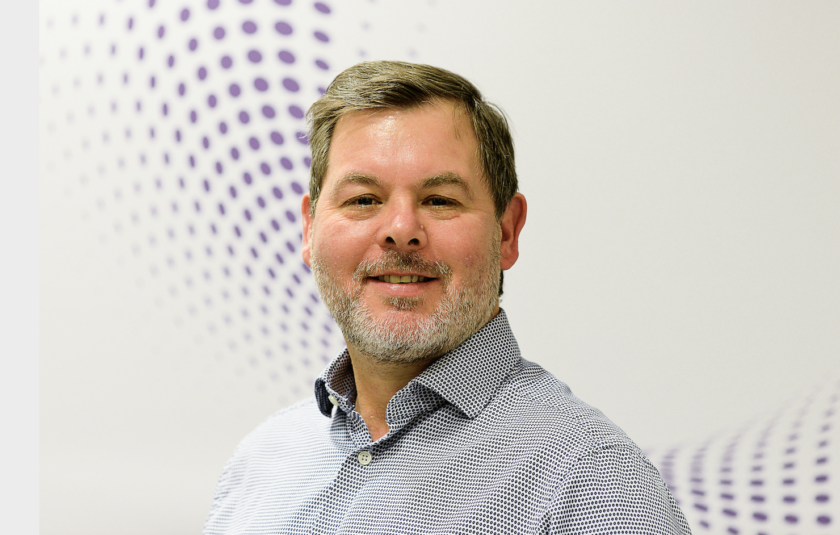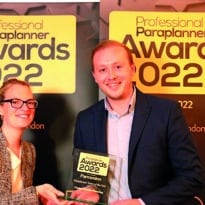Tony Slimmings, Managing Director, Paraplanning Hub talks to Rob Kingsbury about establishing his paraplanning businesses and why he thinks the days of the solo freelance outsourced paraplanner are numbered
Tony Slimmings started his working career in a totally different industry, working as a manager for nearly 10 years with Hovis before switching into financial services in 1992, first as a financial planner with Lloyds Bank, then as a financial planning manager with PwC, before setting up and running his own business in 2001. This he then merged with a larger business, Prismatic Wealth in 2010, exiting that business in 2016, when he decided to focus on both being a paraplanner and ultimately, running a paraplanning business.
in 2010 the merged business had no paraplanning function, he recalls. “The company had a typical set up at the time of administrators and IFAs, who were responsible for writing their own reports. I persuaded the other directors to bring in two graduates to train up to effectively undertake a paraplanning role.” Almost through default he became responsible for this part of the business, checking the reports, etc and gradually, became more involved in the technical side and less involved in financial planning, until in 2014, he moved fully away from advising. By then the business had a paraplanning team.
In 2016 he left the company and set up as an outsourced paraplanner, almost immediately winning a couple of contracts. He puts that down to being a Chartered Financial Planner “and having been an adviser I was able to talk to my clients as an equal and in the same language,” he says. And from that first iteration the Paraplanning Hub was born.
“I came to the market at just about the right time as advice firms’ workloads increased and they needed external resources.”
Last year, Tony says, he came to a crunch point. “I hit my mid-50s and I asked myself, do I continue what I’m doing until I retire or should I do something different?”
At the same time, he says, he began to see the ‘writing on the wall’ for outsourced paraplanning, as it had been for the past few years.
“By then, more and more paraplanners were stepping outside of employed roles and becoming freelance and Cathi Harrison launched The Art of Finance to bring more paraplanners into the market. I could see how the high volume of work outsourced paraplanners had been experiencing would decline just as new waves of paraplanners entered the market.
“I could see also, the need for more of a business structure around outsourced paraplanning, alongside the right resources to help paraplanners obtain and service advice firms. So, I looked at how I could develop the Paraplanning Hub as a business which is all about using technology, robust project management techniques and the right person for the right task to deliver cost effective paraplanning solutions.”
Tony and his then business partner Ross Mills, who has an engineering background, began to map out the paraplanning process and tasks, breaking everything down using a Six Sigma approach. “We realised we could do everything in a much more efficient, more consistent and cheaper way in every case by turning paraplanning from a cottage industry into a more process-driven operation, which could be a cheaper outsourcing option for independently-minded firms who can’t afford their own paraplanners, as well as an agency option for the networks and nationals who need to cover maternity leave or periods of work overflow.
“Early this year I launched a new version of Paraplanning Hub, which is an online paraplanning project management system broken down into 16 tasks, which enables me to allocate each task to the person with the right skills set to get the job done.”
How Paraplanning Hub operates
Set up as a project management system, the adviser loads any new cases onto the Paraplanning Hub using the SPARK system – Suitability, Products, Attitude to risk, Remuneration, Know your client. “We want to keep things as simple as possible so we have focussed on the areas we need advisers to populate with the right information. Each of the paraplanning tasks is then allocated to the person best suited to carry it out, in the right order to be completed in the allocated time frame.”
The suitability report is then written using Genovo’s suitability software, “which means they are consistent and everyone is using the same templates, and then the file is checked by a senior paraplanner,” Tony says.
“This means that alongside templated process that is consistent and to a set standard, there are two to three sets of eyes that view the work along the way.”
Paraplanning Hub is also totally transparent on its fees, publishing by-the-hour charges on the website. “These days people want to research you before they pick up the phone, so our website is all about being up front with people – they can get to know about us, what we offer, the way we work and how much we charge. If they then pick up the phone you’re already halfway to working with them.”
“It’s making the most of technology. Everything can be done online. We have created procedures and processes for everything that needs to be done, all communication can be done via online messaging systems.
“I think people value face-to-face because they are used to it. But I think it can be overplayed. As an outsourced paraplanner I’ve been working with some clients for a number of years and through the various ways we communicate I feel I know them very well, but I’ve never met them. I think as more and more people get used to working remotely, there will be less need for people to actually meet face-to-face.”
“We have also added financial administration to our services and in the last two weeks we have recruited two new paraplanners. We also have some things in the pipeline.”
Changing market
Tony believes outsourced paraplanning has been going through a demand-driven bubble and the next few years will see change in the market. “To date, the cost of using a paraplanner has been going up, driven by the greater demand over limited supply. But now I think the smaller IFA market has become pretty much saturated with outsourced paraplanners.
“What I think will happen, is advice firms will start to look at things like costs and consistency and they will move away from freelance paraplanners to businesses that can offer the level of service they need at a price they want to pay. The market will change as fees begin to be pushed down by market pressures and we get to a point where people will no longer want to be freelance because they are spending too much time chasing business and not enough time doing what they enjoy, which is paraplanning.
“For an outsourced paraplanning firm to work in that environment, the majority of paraplanning cases have to be made more efficient and process driven.
“People like to think financial planning is bespoke but if you dig down into it, it is a process. The purpose of Six Sigma is that you aim for 99.7% perfection and that is what we are aiming for in our processes.”





























